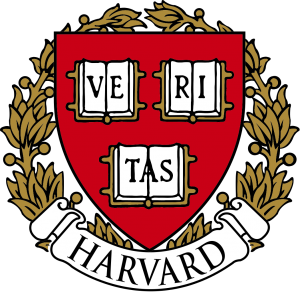On Monday, September 8th, Harvard University ecstatically announced that it had received the single largest gift in its three hundred and seventy-eight year history. Brothers Dr. Gerald Lok-chung Chan and Ronnie Chi-chung Chan of Hong Kong principally donated the $350 million unrestricted contribution through their education-focused charity, the Morningside Foundation. The Morningside Foundation is the philanthropic unit of the Chans’ private equity and venture capital firm, the Morningside Group.
The money will go to Harvard’s School of Public Health, from which Dr. Gerald Chan obtained two degrees in the seventies—a master’s in medical radiological physics and a doctorate in radiology. After producing substantial post-doctoral research he chose, however, to enter the fields of business and finance rather than that of medicine. His deep technical knowledge, however, was later used quite extensively in deciding some of Dr. Chan’s biotechnology-related investments. Dr. Gerald Chan chose not to follow the footsteps of his wealthy, real estate mogul father, the late Chan Tseng-His – in whose honor the targeted school at Harvard will be renamed. Dr. Gerald Chan instead went into entrepreneurship, venture capital, and private equity by founding the aforementioned Morningside Group with his brother in 1986.
By astutely investing in mostly biotech and technology companies which did everything from developing water filtration membranes, solar-paneled roofing, complete clones of human DNA, systems for targeting cancer, and a mobile app to aid in the early detection of Autism (and also by being one of the first to invest heavily in Chinese tech companies), Chan used Morningside to grow his personal fortune considerably, and the group now has a market capitalization of more than $7.5 billion. Chan’s brother Ronnie took over the real estate company that their father founded, the Hang Lung Group, which is one of the largest developers in Hong Kong. He presently serves as its chairman. Together, Gerald, who now resides in Newton, Massachusetts, and Ronnie, who still lives in their native Hong Kong, are estimated to be worth upwards of $3 billion dollars according to Forbes. The tycoon also has made headlines recently for gradually buying up more than $100 million worth of Harvard Square real estate. Significantly, the rebranding of the institution as the T H Chan School of Public Health marks the first time that Harvard will be naming one of its schools in recognition of a gift and only the second school there to bear the name of an individual, after the John F. Kennedy School of Government, which was named as thus in 1966.
The Chans’ gift marks just the latest in a string of major gifts throughout the Ivy League that have largely returned since the drought of headline-breaking contributions immediately after the 2008 Financial Crisis. It is the second largest gift bestowed on any U.S. charitable organization so far this year according to the Chronicle of Philanthropy. It moreover ranks as the seventh largest donation ever to an American university and the third largest donation to an Ivy League school, as per The Chronicle of Higher Education. Aside from Harvard’s second biggest gift for $150 million, which came from hedge funder Kenneth Griffin of Citadel, there have been a number of other huge gifts announced over the last couple years.
Earlier this year, Dartmouth College received the largest gift in its history of $100 million from an anonymous donor, whereas last year Yale had its biggest contribution, $250 million from Charles B. Johnson of Franklin Templeton Investments, and three years ago the same was true for Cornell University, which received $350 million from duty free tycoon Charles F. Feeney’s charity The Atlantic Philanthropies. If President Hanlon intends on keeping up with our peer institutions, he is going to have to step up his fundraising game.


Be the first to comment on "Harvard Continues Trend of Large Collegiate Donations"